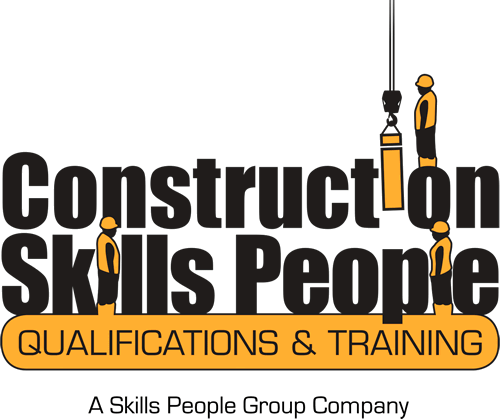Ganger / Foreman
Occupational Work Supervision

Location
National
Accreditation
NVQ
Duration
TBC
Valid for
Lifetime award
About this course
The aim of this qualification is to recognise the knowledge, skills and competence demonstrated by an individual in the workplace. This Level 3 NVQ Diploma in Occupational Work Supervision provides the opportunity for individuals who supervise others in a relevant construction occupational area to demonstrate their competence. The units in this qualification are derived from National Occupational Standards. The list of approved occupation endorsements can be found on our website. Copy and paste the link below into your browser to view:http://www.citb.co.uk/awards/owsendorsementcodesThe Rule of Combination (RoC) below specifies the combination of units that need to be achieved for the individual to be awarded the qualification.To achieve this qualification a minimum of 8 units need to be attained. This comprises the 6 units from the Mandatory Group plus 2 units from the Optional Group.
Mandatory Units
-
Confirming Work Activities and Resources for an Occupational Work Area in the Workplace
A/503/2772Identify work activities, assess required resources and plan the sequence of work., Obtain clarification and advice where the resources required are not available., Evaluate the work activities and the requirements of any significant external factors against the project requirements., Identify work activities which influence each other and make the best use of theresources available., Identify changed circumstances that require alterations to the work programme and justify them to decision makers.
-
Monitoring Progress of Work Against Schedules in the Workplace
F/503/2742Identify and inform decision makers of inappropriate specified resources and suggest suitable alternatives., Identify and quantify deviations from planned progress which have or may occur, and which could disrupt the programme., Confirm the circumstances of any deviations, and agree and implement appropriate corrective actions., Identify options which may produce savings in cost and time and help the contract progress, and pass options onto decision makers., Inform decision makers about progress, changes to the operational programme and resource needs.
-
Developing and Maintaining Good Occupational Working Relationships in the Workplace
M/503/2915Develop, maintain and encourage working relationships to promote good will and trust., Inform relevant people about work activities in an appropriate level of detail, with the appropriate level of urgency., Offer advice and help to relevant people about work activities and encourage questions/requests for clarification and comments., Clarify proposals with relevant people and discuss alternative suggestions., Resolve differences of opinion in ways that minimise offence and maintain goodwill, trust and respect.
-
Confirming the Occupational Method of Work in the Workplace
R/503/2924Assess available project data accurately to determine the occupational method of work., Obtain additional information from alternative sources in cases where the available project data is insufficient., Identify work methods that will make best use of resources and meet project, statutory and contractual requirements., Confirm and communicate the selected work method to relevant personnel.
-
Implementing and Maintaining Health, Safety and Welfare in the Workplace
T/503/2723Allocate and maintain health, safety and welfare equipment and resources to meet project and statutory requirements., Encourage a positive health, safety and welfare culture whilst identifying opportunities for improving the health and safety of the work environment., Ensure that their team is inducted and suitably competent and monitored whilst at the workplace., Monitor health, safety and welfare in the relevant work environment in accordance with statutory requirements.
-
Co-ordinating and Organising Work Operations in the Workplace
D/617/2582The aim of this unit is to illustrate the skills, knowledge and understanding required to confirm competence in co-ordinating and organising work operations in the workplace within the relevant sector of industry.
Optional Units
-
Co-ordinating and Confirming Dimensional Control Requirements of the Work in the Workplace
D/503/2747Co-ordinate with and communicate accurate work information to work colleagues., Confirm and measure dimensional controls and maintain them to the specified work requirements., Check and adjust measuring and recording equipment to the specified accuracy., Identify any deviations in dimensional controls and ensure they are corrected in accordance with work requirements., Identify circumstances and conditions that require revision of work practices.
-
Confirming Work Meets Quality Standards in the Workplace
J/503/2743Identify quality standards from available information and clearly specify to the people responsible for their implementation., Regularly check that work conforms to the design requirements and the specified quality standards., Identify work that fails to meet the requirements and quality standards, and implement corrective action., Regularly inform decision makers about significant variations in quality standards.
-
Implementing Procedures to Support the Team's Performance in the Workplace
L/503/2744Identify performance and bring directly to the attention of the team member concerned., Provide team members with the opportunity to discus actual or potential problems affecting their performance., Agree with team members a course of action which is appropriate, timely and effective., Ensure team members are aware of information regarding disciplinary and grievance procedures.
-
Allocating and Monitoring the Use of Plant, Machinery or Equipment in the Workplace
T/503/2740Confirm the plant, machinery or equipment for the workplace and allocate it to the operations., Identify and assess health and safety risks and implement working practices and other safeguards to minimise risks involving the use of plant, machinery or equipment., Inform decision makers where plant, machinery or equipment is unsuitable for use in the workplace when allocating and monitoring., Provide accurate instructions for the use of plant, machinery or equipment to operators when allocating and monitoring and ensure safe use., Inform decision makers promptly when plant, machinery or equipment is no longer required.
